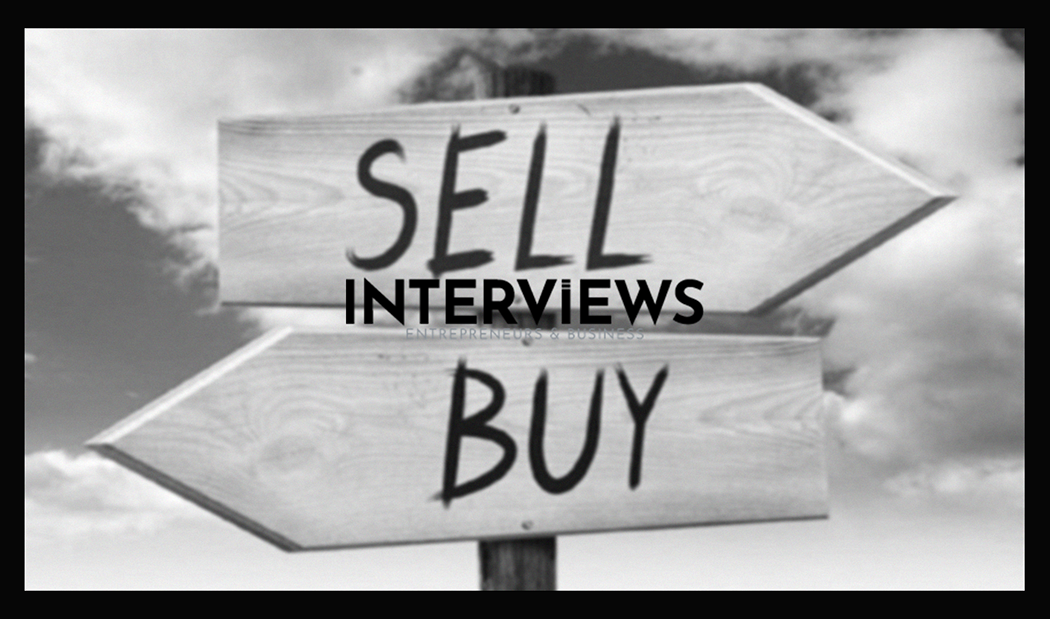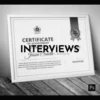Turning Brainwaves into Bucks: A Guide to Selling Your Ideas
You have a million-dollar idea? Great! Ideas alone are worthless. They need action. Sometimes, action means selling to someone else. Selling ideas means convincing people to buy a concept, not just a product. It’s potential, neatly packaged.
Cracking the Code: How to Actually Pitch Your Idea Like a Pro
Ready to pitch your idea? Wait! Before going public, strategize. Pitching isn’t just rambling about your idea. It’s a careful process. Follow these steps to deliver a great pitch:
Step 1: Arm Yourself with Intel – Knowledge is Your Weapon
Knowledge is power in selling ideas. Research the target. Know their market and needs. Understand their pain points. Tailor your pitch. It’s not about you; it’s about solving their problems. In this age of information, leverage what you know.
Step 2: Craft a Presentation That Doesn’t Bore People to Tears
Your presentation matters. No one wants chaos. Aim for professionalism. Make content clear and concise. Whether a slide deck or verbal pitch, engage your audience. Point out the problem, your solution, and potential benefits. Practice. Sound confident.
Step 3: Sharpshooter Targeting – Know Who to Aim For
Avoid scattergun approaches. Identify individuals or companies interested in your idea. Who benefits most? Who can implement it? Targeted pitches are efficient. Focus efforts where they matter most.
Step 4: Qualify Your Targets – Not Everyone’s a Buyer
Interest doesn’t guarantee a buyer. Qualify targets. Are they in a position to invest? Do they have a history of innovation? Avoid dead ends. Concentrate on those likely to say “yes.” It’s like dating. Seek those eager for your brainchild.
Step 5: Seal the Deal – Making it Rain (Figuratively, for Now)
This is the moment of truth. “Make the sale.” It means closing the loop. Clearly outline next steps. Propose a licensing agreement or a buyout. Be prepared for discussions and negotiations. Selling an idea starts a conversation, not ends it.
Fort Knox for Your Thoughts: Protecting Your Idea from Idea Pirates
Concerned someone may steal your idea? That’s valid. Ideas are valuable, and not everyone is fair. Build protective walls around your concept.
Confidentiality is Key – Shush Now!
Loose lips sink ships. Be careful with who you share your idea. The more you talk, the more exposure you have. Treat your idea as a secret mission. Share only what’s necessary.
Non-Disclosure Agreements (NDAs) – Your First Line of Defense
Before sharing details with investors or partners, consider an NDA. This legal document restricts usage and disclosure of your idea. It isn’t foolproof, but it’s a strong deterrent showing you mean business. You can sell an idea without a patent; an NDA is key.
Patents – The Big Guns of Idea Protection
A patent secures your idea. It grants exclusive rights for a set time. Copyrights do not protect ideas, but patents secure functional aspects of inventions. If your idea is innovative, explore patent options. It’s a smart move.
Copyright – For the Tangible Stuff
Copyright protects the expression of your idea. It covers written presentations, diagrams, and code. Document everything! Keep records of your work. It’s not a shield against theft but offers protection for Creative outputs.
Strategic Sharing – Choose Your Confidantes Wisely
Know who to trust with your idea. Ensure they have integrity and genuine interest. Be selective. Share strategically with those who matter. Build a trusted inner circle; don’t broadcast to everyone.
Execution Focus – Ideas are Cheap, Execution is Priceless
Ideas are everywhere. What matters is execution. Concentrate on making your idea real. Progress on execution makes stealing more difficult. Talk is cheap; execution speaks volumes. Focus on building and achieving.
Document Everything – Paper Trail Power
Document your idea journey. Keep records of sketches, notes, and emails. Date everything and store them securely. This paper trail can help prove your idea’s origin if needed. Create an audit trail of your genius.
Trade Shows & Conferences – Public Display of Ownership
Presenting your idea at events establishes you as the originator. Trade shows and conferences showcase innovations. Just be smart about revealing details publicly versus keeping some information private.
Watermarks & Digital Signatures – Marking Your Territory in the Digital Age
In the digital realm, watermarks and digital signatures offer protection. Use watermarks on documents to assert ownership. Digital signatures provide authentication and trace unauthorized use.
From Brainwave to Bank Account: Monetizing Your Mental Marvels
Idea protection matters, but how do you make money from it?
Sell It Outright – The Quick Cash Route
One route is selling your business idea outright. A company or investor pays upfront and manages it. This quickly monetizes your idea, but you lose control and future earnings potential. Think of it as quick profits now.
Patent and License – The Royalty Route
A patent allows for licensing opportunities. You retain ownership, but grant others usage rights in exchange for royalties or fees. This approach enables continued income while sharing your innovation.
A long-term strategy can generate passive income from your intellectual property. You become a landlord of your idea. Collect rent without daily work. MarketBlast provides insights on how to get paid for your invention ideas. Licensing plays a big role.
Decoding Dollar Signs: What Makes an Idea Valuable?
Do you think your idea is special? Maybe it is! Value comes from more than just an “aha!” moment. It involves several factors.
Market Potential – Is There a Hungry Crowd?
Does your idea fix a real problem for a large group? Is there a market? Market potential drives value. An idea for a large, underserved market is more valuable than one for a niche of five people and a dog.
Feasibility – Can It Actually Be Done?
Is your idea realistic? Can it be implemented? Feasibility is key. A brilliant idea that’s impossible or too costly to execute is just an idea. Viability in the real world adds value.
Scalability – Can It Grow Big?
Can your idea scale? Will it grow beyond its initial scope? Scalability attracts investors and companies seeking returns. Limited scalability means limited value in their eyes. Think big and aim for growth.
Execution – It’s Not Just the Idea, It’s How You Play It
We’ve mentioned this: execution is crucial. A mediocre idea well executed can surpass a revolutionary but poorly implemented one. The value of an idea connects with its execution. A solid plan adds significant value to your pitch.
Uniqueness – Standing Out in the Idea Crowd
Is your idea truly unique? Does it offer something different? Uniqueness can boost value. Incremental improvements or clever twists can also resonate with the market. It’s not just about reinventing the wheel, sometimes it’s about improving it.
Pitching to the Big Leagues: Amazon & Netflix – Proceed with Caution
Want to pitch to giants like Amazon or Netflix? Slow down and listen.
Amazon – Generally Idea-Repellent
Amazon typically doesn’t accept unsolicited ideas. Unless they ask for submissions, sending your concept might be ignored. They do not accept proposals unless requested. Adjust your expectations regarding Amazon.
Netflix – A Bit More Pitch-Friendly (But Still Selective)
Netflix is somewhat open to pitches since they are in the content business. They have buyers who receive pitches. Competition is intense. They seek content that matches their brand and audience. Research their content strategy before pitching.
Legally Speaking: Navigating the Idea Law Landscape
Let’s briefly discuss the legal side because grown-up matters count.
Idea Theft – Generally Not a Crime (Legally Speaking)
The hard truth: ideas alone lack legal protection under intellectual property law. Idea theft isn’t really recognized legally. Copyright protects expression, patents protect inventions, but the idea itself is free game. Protect the tangible expressions of your idea and use legal tools like NDAs.
Non-Disclosure Agreements (NDAs) – Your Contractual Shield
NDAs are essential. They protect against unauthorized use of your confidential info, including your idea. A well-drafted NDA restricts a company’s ability to exploit your idea without compensation. It’s vital in your idea-selling toolkit.
Licensing – Legally Renting Out Your Idea
Licensing lets you grant permission to use your idea for payment. This is structured and formal, allowing you to monetize your intellectual property while keeping ownership. It’s a smart way to profit from your ideas legally.
Food for Thought: Final Ponderings Before You Pitch
A few final insights as you start your selling journey.
The Unsung King of Commerce: Fashion is Always in Demand
A fun fact: clothing is the most sold item worldwide. Why does this matter? In high-tech ventures, simple products often have wide appeal. Do not underestimate basic needs and desires.
Easy Does It: Low-Hanging Fruit in the Idea Orchard
The easiest items to sell often include everyday products with broad appeal, like mugs, t-shirts, stationery, or digital goods. These need minimal investment and inventory, posing less risk. Sometimes simpler ideas yield profits. While aiming for big ideas, value simpler, marketable ones.
Your guide to navigating idea selling is here. Go forth and brainstorm, protect, pitch, and profit! Even if your first idea isn’t a hit, keep trying. The world wants fresh ideas, and yours could be next.





